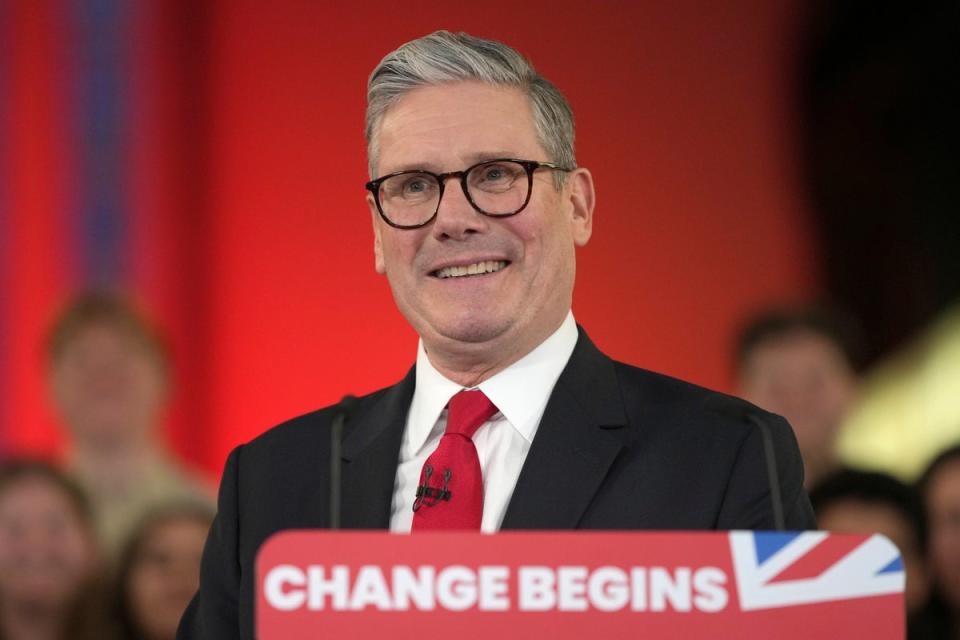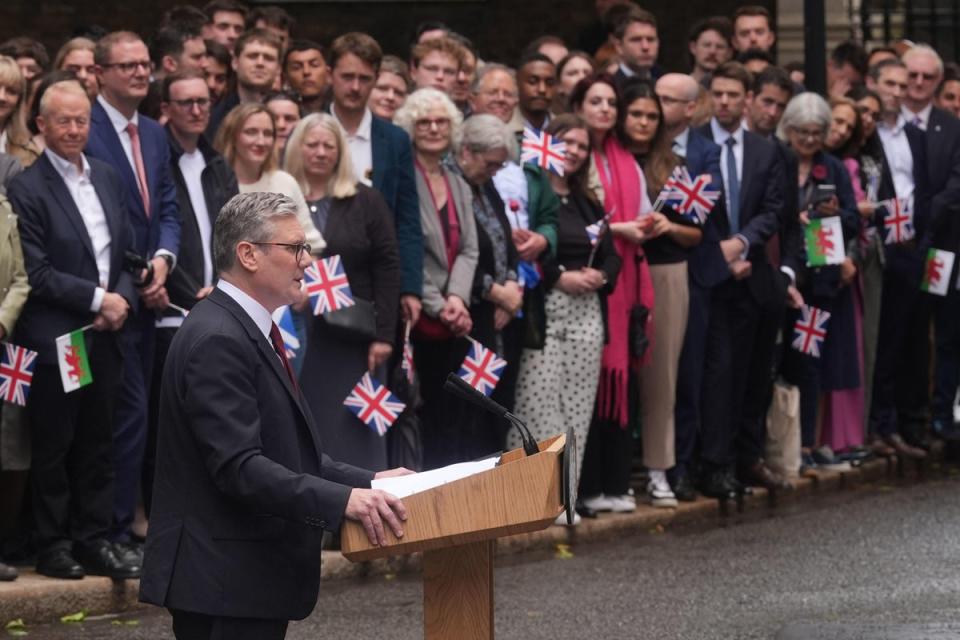Starmer’s cabinet could be most representative of UK society with only 10 per cent privately schooled
Sir Keir Starmer’s new cabinet could be the most representative ever of wider UK society in terms of education, with just 10 per cent having attended private schools.
Labour stormed to a landslide victory in the general election on Thursday, with Sir Keir expected to announce his shadow cabinet just hours after he was sworn in as prime minister on Friday afternoon.
Based on the make-up of his team while in opposition, analysis suggests that Sir Keir’s new cabinet could be the most comprehensively educated in history – and the closest to representing the overall makeup of the UK, where 88 per cent of people attend state schools.

Follow our UK politics blog for live updates
Some 84 per cent of Labour’s shadow cabinet attended a state comprehensive school, while 6 per cent went to grammar schools, according to analysis carried out by the Sutton Trust prior to the election.
While Sir Keir may well make further changes to his top team, the 10 per cent figure would be far below the previous record set by Clement Attlee’s 1945 cabinet, in which 25 per cent of ministers were privately educated, according to the charity.
The analysis found that around 60 per cent of cabinet ministers had been privately educated since the Tories took office in 2010, except for during Theresa May’s premiership, when that proportion fell to 30 per cent.
More widely, the newly elected parliament as a whole is the most representative of the UK’s schooling ever recorded, the social mobility charity found.

Of the 650 MPs elected on Thursday, 63 per cent were educated at comprehensive schools – up from just 54 per cent of those elected at the 2019 general election, and 52 per cent in 2017.
In the new parliament, 73 per cent of Labour MPs attended comprehensives, compared to 42 per cent of the Conservative MPs elected in 2019.
Conversely, 23 per cent of MPs were independently educated at secondary school, compared to 7 per cent of the general population – down from 29 per cent of MPs at both 2019 and 2017 general elections; 13 per cent of all MPs attended a grammar school, compared with 16 and 17 per cent in 2019 and 2017.
Of the 126 MPs who went to independent schools, only four went to Eton, compared to 11 in 2019.
However, the majority of the House of Commons attended a narrow range of universities.
Some 55 per cent attended Russell Group universities, including 20 per cent who went to Oxford or Cambridge, down from 21 per cent in 2019. The number of MPs who did not take an undergraduate degree fell to 10 per cent, down from 12 per cent in 2019.
“This election represents a sea change in the education backgrounds of the governing party in the new House of Commons, with around three-quarters of labour MPs having attended comprehensive schools,” said Sutton Trust chief executive Nick Harrison.
“This matters because people are naturally shaped by their background and life experiences, so it’s important for society that our politicians better reflect the reality of the wider population.
“However, there’s still a long way to go before the Commons is truly representative of the 88 per cent of the population who went to comprehensive schools. If parliament is to truly reflect the nation, it’s vital that more is done to enable talented people from all backgrounds to get the opportunity to become MPs.”


